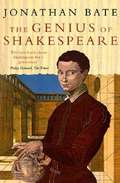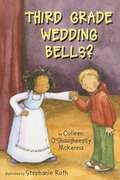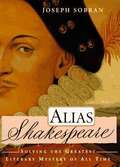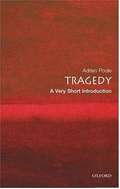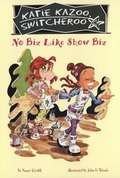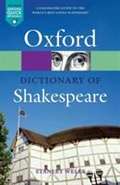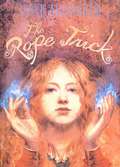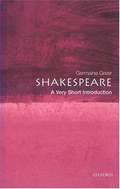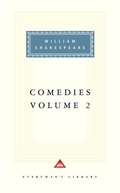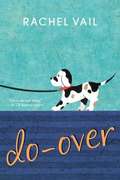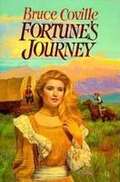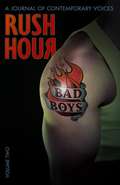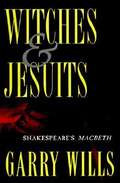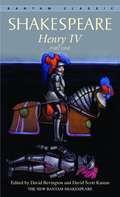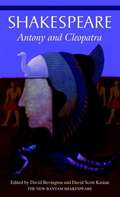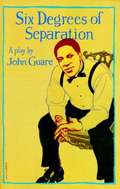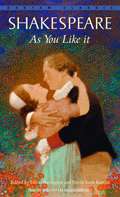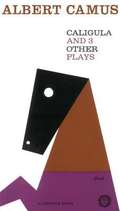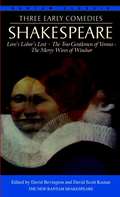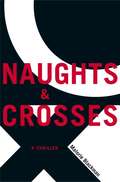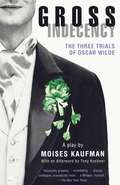- Table View
- List View
The Genius of Shakespeare
by Jonathan BateThis fascinating book by one of Britain's most acclaimed young Shakespeare scholars explores the extraordinary staying-power of Shakespeare's work. Bate opens by taking up questions of authorship, asking, for example, Who was Shakespeare, based on the little documentary evidence we have? Which works really are attributable to him? And how extensive was the influence of Christopher Marlowe? Bate goes on to trace Shakespeare's canonization and near-deification, examining not only the uniqueness of his status among English-speaking readers but also his effect on literate cultures across the globe. Ambitious, wide-ranging, and historically rich, this book shapes a provocative inquiry into the nature of genius as it ponders the legacy of a talent unequaled in English letters. A bold and meticulous work of scholarship, The Genius of Shakespeare is also lively and accessibly written and will appeal to any reader who has marveled at the Bard and the enduring power of his work.
Third Grade Wedding Bells?
by Colleen O'Shaughnessy MckennaThird grade is a big disappointment for Gordie who dreads having to kiss Lucy in the class play and despairs that his favorite teacher, Ms. Tingle, may be getting married.
Alias Shakespeare: Solving the Greatest Literary Mystery of All Time
by Joseph Sobran"Who wrote Shakespeare's plays? Today, the long-standing and impassioned debate about the so-called authorship question is perceived by Shakespearean scholars as the preserve of eccentrics and cranks. But in this contrarian work of literary detection, author Joseph Sobran boldly reopens this debate and allows the members of Shakespeare's vast contemporary public to weigh all the evidence and decide for themselves." "An enormous shelf of biographical scholarship has grown up over the past 300 years around the "Swan of Avon." But what are these histories based on? Revealing that no more than a handful of fragmentary documents attest to Shakespeare's existence - and virtually none which link him to the plays themselves - Sobran delightfully debunks this elaborate egalitarian myth concocted in equal parts of speculation, wishfulness, and fantasy." "More importantly, Sobran shows how many questions the myth leaves unanswered: How could a provincial actor from Stratford gain such an intimate knowledge of court life? How could he know so much of classical authors and not own a single book? How could he write compromising love sonnets to his social superior, the powerful Earl of Southampton? How could he know so much of Italy, a place he never visited? Why was there no notice of the famous writer's death in 1616? Why, in short, does Shakespeare remain such an obscure and shadowy figure?" "Methodically demolishing the case for "Mr. Shakspere," Sobran shows it is highly implausible that he wrote the poems and plays we know as The Works of William Shakespeare. Other candidates exist, of course, including Ben Jonson, Christopher Marlowe, and Francis Bacon. Sobran dispenses with these claimants, then sets forth the startlingly persuasive case for Edward de Vere, the seventeenth Earl of Oxford." "Oxford was a widely traveled, classically educated member of the Elizabethan court. A swashbuckling spendthrift, he swung high and low in the eyes of his peers. Having spent most of his fortune on adventures in Italy and elsewhere on the Continent - like Hamlet he was captured by pirates in the English Channel - he fell into disrepute for reasons that included rumors about his homosexuality. Still he topped many lists of the best Elizabethan poets at the time, even ranking above Edmund Spenser and Sir Philip Sidney. He was an avid book collector, and a love of the literary arts ran in his family. His uncle not only pioneered the sonnet form that came to be known as Shakespearean, he also translated the English edition of Ovid that indisputably guided Shakespeare's pen. More strikingly, Oxford was the ward of Lord Burghley - the man widely acknowledged as the model for the character Polonius in Hamlet. Ultimately, Sobran shows us why a disgraced nobleman such as Oxford would have sought solace in the anonymity of writing pseudonymous plays and poetry." --BOOK JACKET. Title Summary field provided by Blackwell North America, Inc. All Rights Reserved
Tragedy: A Very Short Introduction
by Adrian PooleTo your local anchorperson, the word "tragedy" brings to mind an accidental fire at a low-income apartment block, the horrors of a natural disaster, or atrocities occurring in distant lands. To a classicist however, the word brings to mind the masterpieces of Sophocles, Shakespeare, and Racine; beautiful dramas featuring romanticized torment. What has tragedy been made to mean by dramatists, storytellers, philosophers, politicians, and journalists over the last two and a half millennia? Why do we still read, re-write, and stage these old plays? This lively and engaging work presents an entirely unique approach which shows the relevance of tragedy to today's world, and extends beyond drama and literature into visual art and everyday experience. Addressing questions about belief, blame, mourning, revenge, pain, and irony, noted scholar Adrian Poole demonstrates the age-old significance of our attempts to make sense of terrible suffering.
No Biz Like Show Biz (Katie Kazoo Switcheroo #24)
by Nancy KrulikWhen Miriam gets Suzanne's role in the school play, Katie knows there will be trouble. But she certainly doesn't plan on being involved in it! Unfortunately, the magic wind has plans of its own it turns Katie into Miriam just before the show!
A Dictionary of Shakespeare
by Stanley WellsCompiled by the general editor of The Oxford Shakespeare, and one of the best-known authorities on the playwright's works, this dictionary offers information on all aspects of Shakespeare, both in his own time and in later ages. The wide-ranging entries cover Shakespeare's plays, as well as everything from famous actors, writers, and directors connected with Shakespeare, to theatres, historical figures and places of particular interest relating to his life and work. The dictionary also includes box features of passages on Shakespeare by other famous authors, from Dr. Johnson and Jane Austin to Bernard Levin and Virginia Woolf. Ideal reference for the student, actor, or director, and fascinating browsing for the general reader interested in Shakespeare's life and work.
The Rope Trick
by Lloyd AlexanderIt's magic! The great American storyteller Lloyd Alexander conjures an engrossing tale of a bewitching magician. Lidi is not only beautiful, she has the talent to perform the greatest magic feat imaginable--the rope trick. But she must find the one master who can teach her how. On her quest to find master magician Ferramondo, she meets some traveling companions who all help on the journey: a child with true supernatural powers, a handsome outlaw with a price on his head, a successful entrepreneur who wants her in his troupe. But when the child is kidnapped, Lidi must abandon the search and summon her own powers to save the girl. The thrilling conclusion is Alexander at the top of his form in a remarkable fantasy that is both light and dark, funny and serious, believable and mystical. As always with an Alexander novel, the real magician is the storyteller himself.
Shakespeare: A Very Short Introduction
by Germaine GreerA clear introduction to Shakespeare's plays, this volume examines them in detail and shows how Shakespeare dramatized moral and intellectual issues in such a way that his audience became dazzlingly aware of an imaginative dimension to daily life. Germaine Greer argues that as long as Shakespeare's work remains central to English cultural life, it will retain the values which make it unique in the world.
William Shakespeare: His Life and Times
by Dennis KayA concise critical introduction to the greatest playwright in the English language.
Comedies, Volume 2
by William ShakespeareShakespeare's later comedies were written at the astonishing pace of about two plays a year. In them, he moves beyond the farce of his earlier comedies to richer and more varied dramas. These range from the famous "problem plays," which blend humor with tragedy, to the idyllic romances set in such timeless locales as the Forest of Arden. They contain some of his wittiest and most memorable characters, from cross-dressing heroines, bantering lovers, and wisecracking fools to the villainous but sympathetic Shylock and the boisterous and bawdy Falstaff. This volume contains The Merchant of Venice, The Merry Wives of Windsor, Much Ado About Nothing, As You Like It, Twelfth Night, All's Well That Ends Well, and Measure for Measure. The authoritatively edited text of the plays is supplemented with footnotes, bibliographies, a detailed chronology of Shakespeare's life and times, and a substantial introduction in which Tony Tanner discusses each play individually and in the context of Shakespeare's work.
Do-Over
by Rachel VailVail's most lauded book to date, "Do-Over" is the story of 13-year-old Whitman, who has to deal with the anger he feels towards his father when his parents separate, his own interest in several girls, and the heady feeling of acting in his first play.
Fortune's Journey
by Bruce CovilleSixteen-year-old Fortune Plunkett faces many challenges on an overland journey to California in 1853 with the acting company that she inherited from her father.
Rush Hour: Bad Boys (A Journal of Contemporary Voices Volume #2)
by Michael CartBold, innovative, and eclectic--that's Rush Hour,the place for thought-provoking stories, essays, art, and poems from today's most distinguished voices, both established and new. "Bad Boys" is the hard-hitting theme of Volume Two. Here are drifters, pranksters, jocks, rebels, monsters, and heroes living life on the edge. In knockout stories by Jackie Woodson and E. R. Frank, artwork by John O'Brien and Chris Gall, essays by Robert Lypsite and Jack Gantos, and much more, bad boys sometimes play by the rules, often misbehave, but always grab our attention. This second issue solidifies the reputation of this unprecedented, pulsating journal, published twice a year and focused on themes today's readers care about most. "Rush Hour is ... a vehicle for sharp, challenging new writing that aims for a discerning and literate young adult audience the way the best literary magazines have long done for older readers."
Witches and Jesuits: Shakespeare's Macbeth
by Garry WillsIn Witches and Jesuits, Wills focuses on a single document to open up a window on an entire society. He begins with a simple question: If Macbeth is such a great tragedy, why do performances of it so often fail? After all, the stage history of Macbeth is so riddled with disasters that it has created a legendary curse on the drama. Superstitious actors try to evade the curse by referring to Macbeth only as "the Scottish play," but production after production continues to soar in its opening scenes, only to sputter towards anticlimax in the later acts. By critical consensus there seems to have been only one entirely successful modern performance of the play, Laurence Olivier's in 1955, and even Olivier twisted his ankle on opening night. But Olivier's ankle notwithstanding, Wills maintains that the fault lies not in Shakespeare's play, but in our selves. Drawing on his intimate knowledge of the vivid intrigue and drama of Jacobean England, Wills restores Macbeth's suspenseful tension by returning it to the context of its own time, recreating the burning theological and political crises of Shakespeare's era. He reveals how deeply Macbeth's original 1606 audiences would have been affected by the notorious Gunpowder Plot of 1605, when a small cell of Jesuits came within a hairbreadth of successfully blowing up not only the King, but the Prince his heir, and all members of the court and Parliament. Wills likens their shock to that endured by Americans following Pearl Harbor or the Kennedy assassination. Furthermore, Wills documents, the Jesuits were widely believed to be acting in the service of the Devil, and so pervasive was the fear of witches that just two years before Macbeth's first performance, King James I added to the witchcraft laws a decree of death for those who procured "the skin, bone, or any other part of any dead person--to be employed or used in any manner of witchcraft, sorcery, charm, or enchantment." We see that the treason and necromancy in Macbeth were more than the imaginings of a gifted playwright--they were dramatizations of very real and potent threats to the realm. In this new light, Macbeth is transformed. Wills presents a drama that is more than a well-scripted story of a murderer getting his just penalty, it is the struggle for the soul of a nation. The death of a King becomes a truly apocalyptic event, and Malcolm, the slain King's son, attains the status of a man defying cosmic evil. The guilt of Lady Macbeth takes on the Faustian aspect of one who has singed her hands in hell. The witches on the heath, shrugged off as mere symbols of Macbeth's inner guilt and ambition by twentieth century interpreters, emerge as independent agents of the occult with their own (or their Master's) terrifying agendas. Restoring the theological politics and supernatural elements that modern directors have shied away from, Wills points the way towards a Macbeth that will finally escape the theatrical curse on "the Scottish play." Rich in insight and a joy to read, Witches and Jesuits is a tour de force of scholarship and imagination by one of our foremost writers, essential reading for anyone who loves the language.
King Henry V
by William Shakespeare David Bevington David Scott Kastan James Hammersmith Robert Kean Turner Joseph PappA play alive with escapades and action, comedy and history, "Henry IV, Part One begins the transformation of the madcap Prince Hal into the splendid ruler King Henry. In it a rebellion against King and State is juxtaposed with another rebellion-the riotous misbehavior of Hal and his companions, principally Falstaff. A superbly funny liar, coward, lecher, and cheat, the larger-than-life character Falstaff turns this great historical drama into a masterpiece of counterpoint and design. Each Edition Includes: - Comprehensive explanatory notes - Vivid introductions and the most up-to-date scholarship - Clear, modernized spelling and punctuation, enabling contemporary readers to understand the Elizabethan English - Completely updated, detailed bibliographies and performance histories - An interpretive essay on film adaptations of the play, along with an extensive filmography Copyright © Libri GmbH. All rights reserved.
Antony and Cleopatra
by William Shakespeare David Bevington David Scott Kastan James Hammersmith Robert Kean Turner Joseph PappA magnificent drama of love and war, this riveting tragedy presents one of Shakespeare's greatest female characters--the seductive, cunning Egyptian queen Cleopatra. The Roman leader Mark Antony, a virtual prisoner of his passion for her, is a man torn between pleasure and virtue, between sensual indolence and duty... between an empire and love. Bold, rich, and splendid in its setting and emotions,Antony And Cleopatra ranks among Shakespeare's supreme achievements.
As You Like It
by William Shakespeare David Bevington David Scott Kastan James Hammersmith Robert Kean Turner Joseph PappThis wisely funny comedy, which contains some of Shakespeare's loveliest poetry, contrasts a court's world of envy and rivalry with a forest's world of compassion and harmony. In the Forest of Arden, the banished young heroine, Rosalind, disguised as a gentleman farmer, encounters an extraordinary assemblage of characters, including a fool, a malcontent traveler, her own banished father, and the banished young man she loves. Romantic happiness triumphs, even as we laugh at the excesses of love, at the ways of court and countryside, indeed, at everything, in this masterpiece of comic writing. Each Edition Includes: * Comprehensive explanatory notes * Vivid introductions and the most up-to-date scholarship * Clear, modernized spelling and punctuation, enabling contemporary readers to understand the Elizabethan English * Completely updated, detailed bibliographies and performance histories * An interpretive essay on film adaptations of the play, along with an extensive filmography
Caligula and Three Other Plays
by Albert Camus Stuart Gilbert'One word to tell the reader what he will not find in this book. Although I have the most passionate attachment for the theater, I have the misfortune of liking only one kind of play, whether comic or tragic.
Three Early Comedies: Love's Labor's Lost, The Two Gentlemen of Verona, The Merry Wives of Windsor
by William Shakespeare David Bevington David Scott Kastan James Hammersmith Robert Kean Turner Joseph PappThree Early Comedies: Love's Labor's Lost Farce and fun follow when a young king and his three friends vow to give up women for a year--just as a pretty princess and her three ladies-in-waiting arrive--in a delightful play that ends with one of Shakespeare's loveliest songs. The Two Gentlemen of Verona: In this lyrical comedy, two friends are infatuated with the same woman, while a jilted girl disguised as a boy and a clownish servant with a raffish mutt set the scene for laughter and a timeless story of love. The Merry Wives of Windsor: Shakespeare's famous rogue, Falstaff, woos two married women with identical love letters--and becomes the focus of a hilarious comedy when the women conspire to teach him a lesson.
Naughts and Crosses
by Malorie BlackmanCallum is a naught, a second-class citizen in a society run by the ruling Crosses. Sephy is a Cross, and daughter of the man slated to become prime minister. In their world, white naughts and black Crosses simply don't mix -- and they certainly don't fall in love. But that's exactly what they've done. When they were younger, they played together. Now Callum and Sephy meet in secret and make excuses. But excuses no longer cut it when Sephy and her mother are nearly caught in a terrorist bombing planned by the Liberation Militia, with which Callum's family is linked. Callum's father is the prime suspect...and Sephy's father will stop at nothing to see him hanged. The blood hunt that ensues will threaten not only Callum and Sephy's love for each other, but their very lives.In this shocking thriller, UK sensation Malorie Blackman turns the world inside out. What's white is black, what's black is white, and only one thing is clear: Assumptions can be deadly.
Gross Indecency: The Three Trials of Oscar Wilde
by Moises KaufmanA theatrical depiction of the Oscar Wilde trials that took place in the late 1800s. The famous playwright and renowned wit was publicly tried for his rumoured relationship with Lord Alfred Douglas. His sentencing shaped society's view of homosexuality as a criminal act.
Shakespeare at Work: 1592-1603
by G. B. HarrisonProvides discussion of the plays of Shakespeare written and performed during this period.

